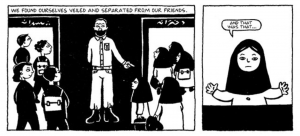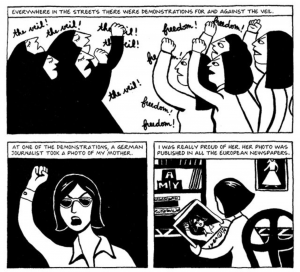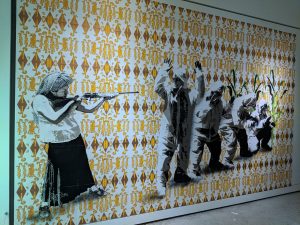
When I searched up the word “truth” on the internet, definitions are always concerning facts and reality. However, the understanding of truth could be different for everyone and in different contexts. Sometimes, denying the truth may be unintentional.

In Disgrace, professor Lurie loses his reputation, his job, his dreams and the ability to protect his daughter Lucy due to his dissatisfaction towards his career and romantic relationship with his student Melanie. The discussion of truth has been a major theme in this book, where the author, J.M. Coetzee, has come up with his own meaning of truth in his essay “Confession and Double Thoughts” (1985). The author defines it through three aspects: the reality of the event under critical examination, the discovery of the truth through confessing and “unconscious truth,” where confessants think that they are telling the truth of a particular thing but is, however, exposing something different.
In the case of Melanie, where Lurie’s “disgrace” came from his seduction of a girl Melanie, who was one of his students, and committing to other actions which were regarded as rape. Lurie abuses his position as a university professor when facing Melanie. For instance, he falsified Melanie’s grades when she stopped attending his class. After a while when Lurie got dismissed from his teaching position, he feels guilty from his own behavior but refuses to validate the University’s version of truth as he believes that this will affect the effectiveness of his confession in public. In addition, he denies the fact that he raped Melanie. As it shows, the truth in this circumstance was always evident. However, it can be seen that people are unwilling to admit the truth when it comes to being something related to the crime to avoid punishment. This also relates to society, where robbers and other suspects do not admit their offense behavior in the first place unless being forced through violence or additional pressure.

Maus also portrays the idea of truth in another matter. Through Artie’s narrative, he strives to present to readers his understanding of his father Vladek’s experience as a Polish Jew and a Holocaust survivor. Some scholars have criticized the graphic memoir arguing that the story is highly biased and is an inaccurate representation of the truth. It is true that Artie was not able to adequately represent the truthful story of his father since he also had struggles understanding his father at most times. In addition, the story told to Artie through his father might not be as accurate as well. As time passes by, the memory of Vladek may either disappear or be distorted. Thus, the version of the experience may be more distorted than what Artie’s father has truly come across. There is no doubt that the story illustrated by the author is an autobiographical narrative instead, which only shows readers the part where he understands. Consequently, the truth is often distorted through uncertainties in our memory and experience. Even though it is often unintentional in this case, the truth is often hidden where no one would be able to find.

In modern society, the truth has also been distorted and hidden. People are often being judged by controlling images and stereotypes. Such issues have also led to prejudice and discrimination for such group of people. For instance, ethnic minorities are often perceived as having lower academic and work abilities and believed never to be able to perform better than their candidates.
However, this is not the truth! What affects them the most is our biased perceptions of them. Our own construction of the reality led to internalized oppression and pressured them to perform self-fulfilling prophecy, which occurs when direct or indirect causes become true. In my opinion, this is the primary reason why ethnic minorities often perform less desirable in academics than their fellow classmates.
From my perspective, the definition of truth is often vague and controversial. Everyone has their own stories and their own opinions. However, does not share what we know a form of deception? Do we have to expose every part of ourselves to be a truthful person? I would say it’s still an unknown.
Works Cited:
Glass, Susannah Ketchum. “Witnessing the Witness: Narrative Slippage in Art Spiegelman’s Maus.” Life Writing, vol. 3, no. 2, 2006, pp. 3–24., doi:10.1080/10408340308518311.
Coetzee, J. M. Disgrace. Penguin Books, 2000.
Spiegelman, Art. The Complete Maus. Pantheon Books, 1997.
Poyner, Jane. J.M. Coetzee and the Paradox of Postcolonial Authorship. Taylor and Francis, 2016.










